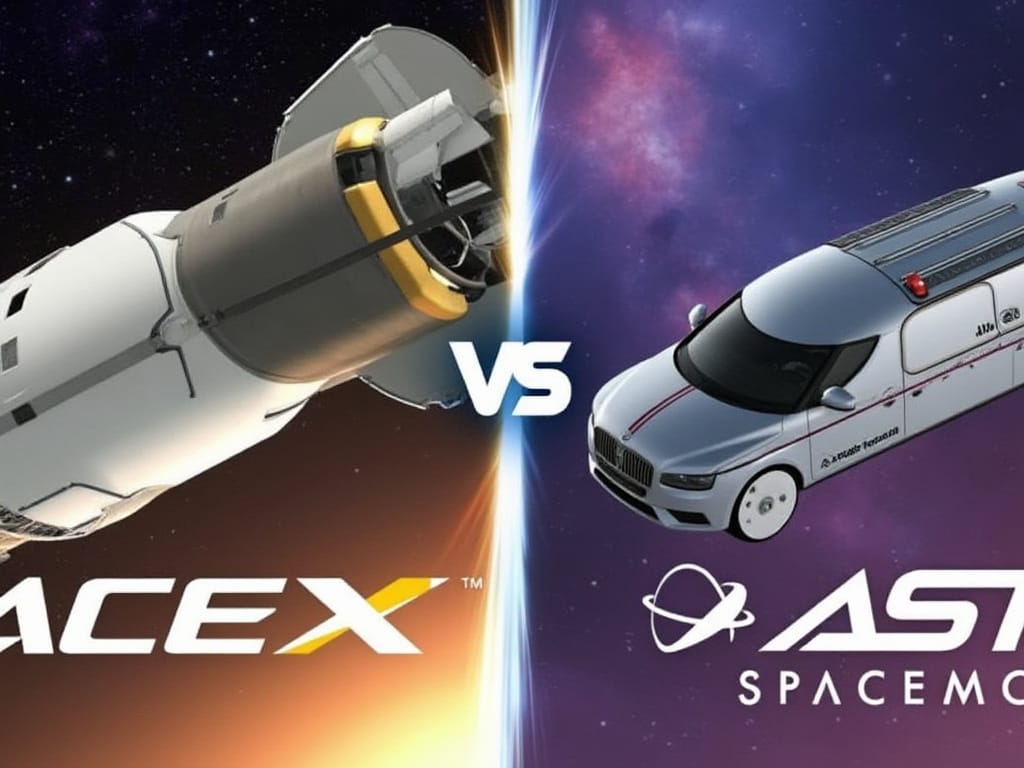SpaceX vs. AST SpaceMobile: A Cosmic Clash of Titans or Just Market Memes?

In the vast expanse of the burgeoning space industry, where satellites are the new stars, a rivalry brews not just among the stars, but in the stock market too. AST SpaceMobile, a company with ambitions as lofty as its satellite orbits, has found itself in the crosshairs of none other than SpaceX, Elon Musk's space venture juggernaut. The contention? A label that sticks like cosmic dust: "meme stock."
The saga unfolded with SpaceX launching not just rockets but also accusations, branding AST SpaceMobile with the meme stock moniker during regulatory filings. This wasn't just corporate banter; it was a strategic move in a chess game played above our atmosphere. SpaceX, with its Starlink project aiming to blanket Earth in internet coverage, sees AST's approach of enabling direct satellite connections to regular smartphones as direct competition. But why the meme stock dig?
AST SpaceMobile's stock had rocketed an astonishing 1,300% earlier in 2024, a surge more reminiscent of a viral Reddit rally than a traditional stock climb. This volatility, coupled with AST's unique business proposition, caught SpaceX's ire. The label suggests that AST's valuation might owe more to social media fervor than to its technological prowess or market readiness.
Behind this label lies a deeper battle over spectrum and satellite supremacy. SpaceX, pushing for regulatory waivers to boost Starlink's capabilities, has encountered resistance from an alliance of telecom giants like AT&T and Verizon, who are betting on AST SpaceMobile. These companies, perhaps seeing a threat in SpaceX's aggressive expansion, have rallied behind AST not just as investors but as vocal opponents in regulatory arenas.
This isn't merely about market share; it's a clash of visions for the future of global connectivity. While SpaceX's Starlink aims for widespread internet coverage, potentially transforming remote areas into connected hubs, AST SpaceMobile's goal is to ensure that anyone, anywhere, can make a call or send a text directly via satellite, no special equipment needed.
The feud has spilled over into public perception, with SpaceX's comments aimed at casting doubt on AST's credibility. It's a classic tale of innovation meeting resistance, where the new kid on the block (or rather, in orbit) is both celebrated for its potential and scrutinized for its audacity.
As these two giants of the new space race engage in this cosmic tug-of-war, the stakes are high. The outcome will not only decide who leads the charge in space-based communications but might also set precedents for how competition in space tech is conducted. Will AST SpaceMobile rise above the meme stock label to prove its mettle, or will SpaceX's Starlink project overshadow it by sheer scale and regulatory might?
In this celestial corporate battle, one thing is clear: the race to connect the world from above is not just about technology or market dominance; it's about defining the future of communication. And as these companies aim for the stars, they're reminding us that in the vastness of space, just like on Earth, it's not just about reaching higher but also about the ground you stand on in the marketplace.





